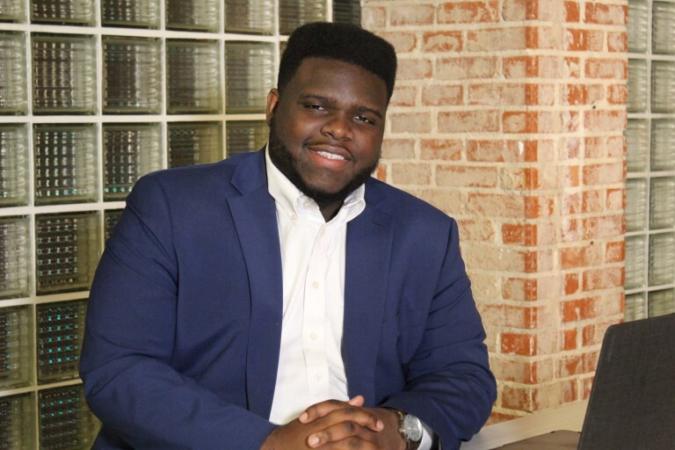On the centennial of the Tulsa Race Massacre on June 1, Tyrance Billingsley II decided to launch an organization to aid Black entrepreneurs living in the area once known as Black Wall Street.
The native Black Tulsan entrepreneur teamed up with SecondMuse to launch Black Tech Street, a national initiative and tech hub on a mission to mobilize resources and companies to build a community for Black-owned technology companies.
“I am a born and raised Tulsa entrepreneur, ecosystem builder and community leader. I excel in visioning and convening people to work together toward building collective progress,” Billingsley told AfroTech. “I am passionate about the tech industry and envisioning ways we can use technology to enhance quality of life.”
SecondMuse has a decade of experience incubating entrepreneurial ecosystems to create equitable economies. With 13 global offices, the global innovation company will be lending personnel and resources to Billingsley to execute Black Tech Street’s programming.
Black Tech Street will begin its work of building a stronger Black tech ecosystem in Tulsa by focusing on six key pillars: entrepreneurial support; culture, narrative and community; capital; infrastructure; workforce; and policy.
“Black Tech Street’s mission is to rebirth Black Wall Street as a top tier Black Innovation Economy and serves as the banner for a global movement that sees Black people across the country, and the world, [and] embrace technology as a means to close the racial wealth gap and have a positive impact on the world,” Billingsley said.
Black Tech Street is looking to co-design a comprehensive 10-year innovation strategy for the Tulsa ecosystem around those six pillars it focuses on. The tech hub will host a variety of programming spanning K-12 STEM education, spinning up new financial vehicles, and a narrative campaign around Tulsa being a new haven for Black tech and innovation.
Over the next five years, Billingsley said he envisions Black Tech Street being at the forefront of global thought leadership on building equitable economies, economic justice and scaling human potential through technology.
“I envision that Tulsa is starting to see the budding of a thriving Black innovation economy that is the result of the work of organizations like Black Tech Street, Build in Tulsa and so many others,” Billingsley said. “I see Black Tech Street’s model being examined and cities thinking about how it can be scaled to other communities.”
Black Tech Street is currently fundraising alongside many different partners with plans to fund programming activities by acquiring contracts. The organization has also launched the Black Tech Street Centennial Coin NFT, a one-of-a-kind coin that honors the memory of Black Wall Street’s co-founder O.W. Gurley. Billingsley said his non-fungible token (NFT) can serve as a stream of recurring revenue for Black Tech Street via smart contracts and the NFT secondary market.
Here are some long term goals Billingsley wants to accomplish with Black Tech Street:
- Facilitate $1 billion worth of investment in building Tulsa’s Black Innovation Economy over the next 10 years.
- To serve as the banner for a global movement that catalyzes a culture shift and see’s Black people everywhere embrace technology as a means to build wealth and positively impact the world.
- Promote large tech companies to build remote Black workforces that they base out of Tulsa.
- Make sure Tulsa is known as a global haven for Black tech excellence.
“I want young Black kids, everywhere but especially in Tulsa, to grow up knowing that it is their birthright to enter the tech industry because Black is innovative,” Billingsley said.
For more of what Billingsley envisions for Black Tech Street, check out this piece he wrote for CNN.


